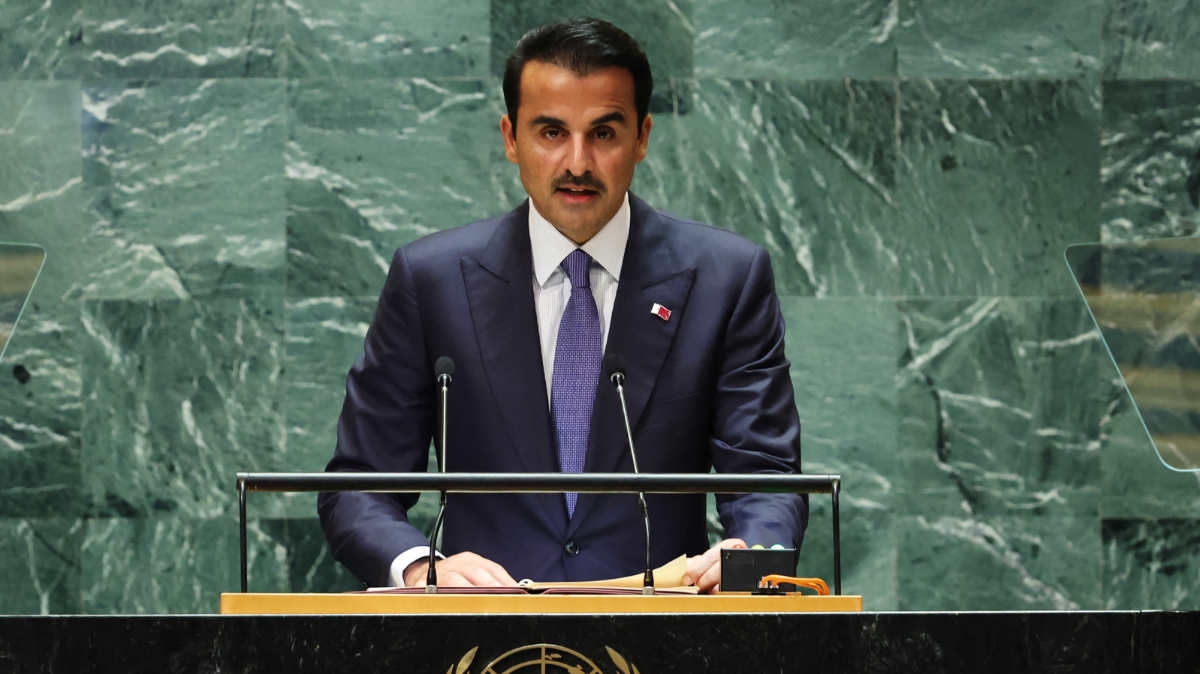Qatar becomes first Arab state to join US visa waiver programme

The US has said it will waive visa requirements for citizens of Qatar, making the gas-rich Gulf state the first Arab country, and only the second Muslim-majority country, to join a network of states with expedited travel to the US.
The US Department of Homeland Security said on Tuesday that the Gulf monarchy cleared the "stringent security requirements" to become the 42nd member of the US’s visa waiver programme.
The agreement "will deepen our strategic partnership and enhance the flow of people and commerce between our two countries," Secretary of State Antony Blinken said in a statement.
Qatar’s population stands at just 2.6 million, of whom only a tiny fraction - around 313,000 - are citizens. The US visa waiver programme is mainly reserved for wealthy western European and Asian states. Israel was added to the programme last year.
Qatar has a GDP per capita of $87,661, which is roughly $10,000 above the US’s. US officials said they were open to other Gulf Arab nations eventually entering the programme.
New MEE newsletter: Jerusalem Dispatch
Sign up to get the latest insights and analysis on Israel-Palestine, alongside Turkey Unpacked and other MEE newsletters
The only other Muslim-majority country in the programme is the Southeast Asian nation of Brunei.
Qatar is also a key US ally. It is home to al-Udeid, the largest US air base in the Middle East and the forward operating headquarters of all US forces in the region also known as Centcom. Roughly 10,000 US troops are based in Qatar.
In January, the Biden administration reached a deal to extend its stay at the base for another 10 years.
Qatar diligently guards its partnership with the US.
Doha previously weathered a blockade by neighbours UAE, Saudi Arabia and Bahrain over its alleged ties to the Muslim Brotherhood, among a host of other reasons. Qatar has since patched up ties with Riyadh, but relations with Abu Dhabi remain frosty and they are aiding different sides in Sudan’s civil war.
Qatar remained close to Republican and Democratic administrations by demonstrating its value to the US. It helped the US fly out thousands of Afghan allies as the Taliban seized control of the country. More recently, it has mediated alongside Egypt for an elusive ceasefire in Gaza.
While Qatar enjoyed good ties with the Biden administration, it has come under some pressure from members of Congress who are irked by its relationship with Hamas.
Hamas was based in Damascus, Syria, until 2012, when it fell out with the Syrian government over the country’s civil war. Qatar agreed to host the exiled leadership at the request of the US to maintain an indirect line of communication with the group, Qatari officials say.
In June, The Wall Street Journal reported that both Qatar and Egypt warned Hamas officials that they face possible arrest, freezing of their assets, sanctions and expulsion from Doha if they don’t agree to a ceasefire with Israel.
Middle East Eye delivers independent and unrivalled coverage and analysis of the Middle East, North Africa and beyond. To learn more about republishing this content and the associated fees, please fill out this form. More about MEE can be found here.





